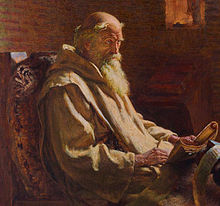And the sharing of knowledge gleaned from Lacey’s Volume II continueth:
- Days of the week history:
- In the fourth century, King Ethelbert (a pagan sovereign in England) married Bertha (who happened to be a Christian). Since the nation was divided in its loyalties to both Christianity and several pagan beliefs, the king wanted to find a way to blend the very different belief systems. And thus, the days of the week were born. (Did they not have days of the week before now?)
Sun-day and Moon-day (pagan belief)
Tiw’s Day (Germanic god of war)
Woden’s Day (Germanic god of wisdom)
Thor’s Day (Germanic god of thunder)
Freya’s Day (Germanic god of love)
Saturn’s Day (Roman idea in pre-Christian days)
- Lady Godiva who is generally thought to have ridden through her town naked on a horse to protest her ruling husband’s tax increases. The word “naked” used to mean “unadorned” and would commonly refer to whether you were wearing jewels or not. (So she probably wasn’t actually without clothes, but more likely in very plain clothes without all the expensive sparkles that would usually be worn.)
- “Peeping Tom” – again linked with Lady Godiva. When Lady G. was riding her horse through the town, legend has it that all the townspeople closed their house shutters out of respect for her nakedness. All except one naughty tailor called Thomas who couldn’t resist the urge to have a looksie. Legend has it that he was punished by being struck blind immediately after this. Thus the “Peeping Tom” phrase. See?….
 And then there was the 6th century monk Venerable Bede (“venerable” meaning old/ancient, “bede” is an old word meaning “prayer”*). What’s notable about him is that he wrote the first written history of England called “The Ecclesiastical History of the English People”. He was a polymath and wrote more than 65 other books on topics ranging from the Bible, science, spelling, astronomy, sea tides etc.
And then there was the 6th century monk Venerable Bede (“venerable” meaning old/ancient, “bede” is an old word meaning “prayer”*). What’s notable about him is that he wrote the first written history of England called “The Ecclesiastical History of the English People”. He was a polymath and wrote more than 65 other books on topics ranging from the Bible, science, spelling, astronomy, sea tides etc.
He also seemed to have a positive interpretation of life. Take this, for example:
Bede’s interpretation of life:
It seems to me that the life of man on earth is like the swift flight of a single sparrow through the banqueting hall where you are sitting at dinner on a winter’s day with your captains and counselors. In the midst there is a comforting fire to warm the hall. Outside, the storms of winter rain and snow are raging. This sparrow flies swiftly in through one window in the hall and out through the other. While he is inside, the bird is safe from winter storms, but after a few moments of comfort, he vanishes from sight into the wintry world from which he came. So, man appears on earth for a while – but of what went before this life, or what follows, we know nothing.
When he was dying, he was working on finishing one of his books with his pupils, and knowing that the end was near, told them:
“Learn quickly now for I do not know how much longer I will live.”
Seemed like good advice for everyone and that he was a rather cool monk to me.
 I’ve already read Volume III of this series (which was equally as good) and I highly recommend these reference books as readable and accessible collections of events over the years, many of which I had heard of but had no clear picture of what the details really were (from a historical perspective). It’s scholarly but approachable, and Lacey has a very sly sense of humor that creeps in every now and then (and which I thought was hilarious at times). If I was going to ask someone interesting to dinner, I’d definitely invite Mr. Lacey as he is a great raconteur.
I’ve already read Volume III of this series (which was equally as good) and I highly recommend these reference books as readable and accessible collections of events over the years, many of which I had heard of but had no clear picture of what the details really were (from a historical perspective). It’s scholarly but approachable, and Lacey has a very sly sense of humor that creeps in every now and then (and which I thought was hilarious at times). If I was going to ask someone interesting to dinner, I’d definitely invite Mr. Lacey as he is a great raconteur.
The middle volume is left for me to look at, and I’m so looking forward to reading it. Just need the contents in this volume to marinate a bit as there was so much to take in. Loved it.
- Note to self: I wonder if that is related to my home town’s name of “Bedford”. I’ve always heard mention of it stemming from “St, Bede’s Ford” so it might be that it refers to this guy. He was actually made into a saint after he had died…

